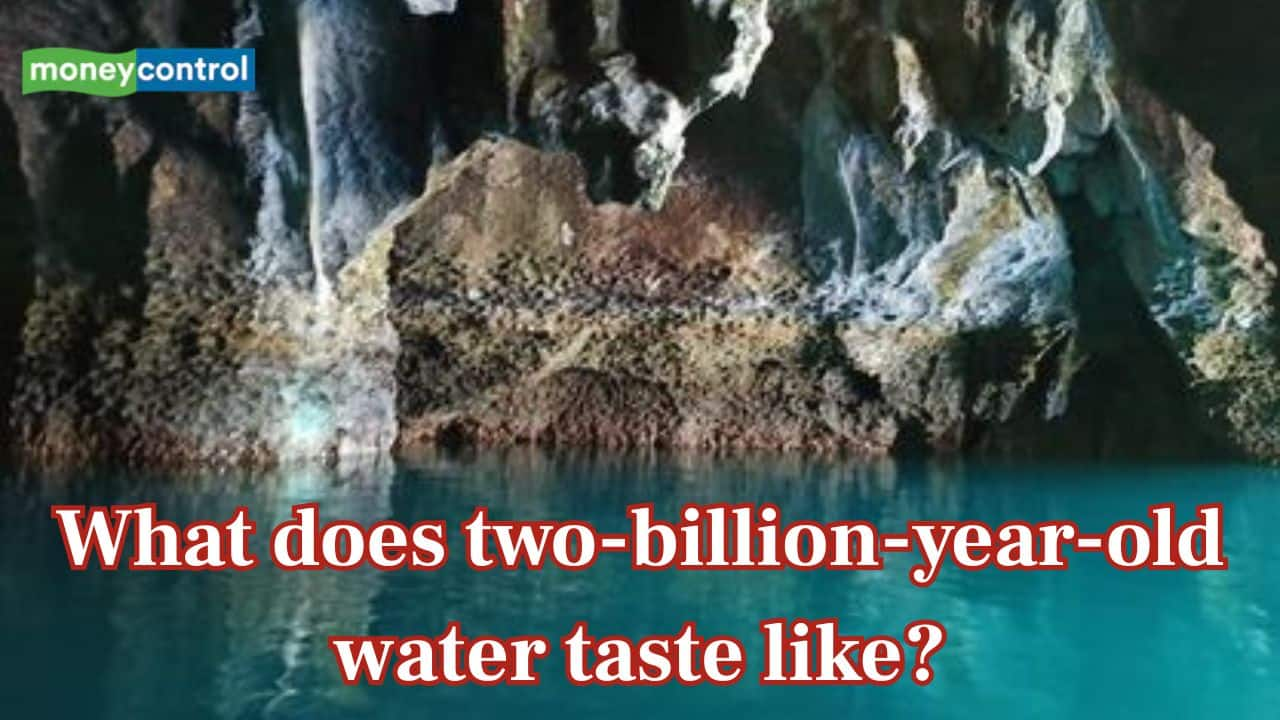World
Scientists Discover and Taste Two-Billion-Year-Old Water

Researchers in Canada have made a remarkable discovery, unearthing water that has been sealed beneath the Earth’s surface for over two billion years. This ancient water, found nearly three kilometres deep inside a mine, represents the oldest known water on the planet. The research team, led by Professor Barbara Sherwood Lollar, was astonished by the volume of water, which was flowing freely rather than being trapped in small pockets.
“This water was bubbling right up at you, at litres per minute,” stated Sherwood Lollar, highlighting the unexpected quantity of this long-secluded resource. The implications of this discovery extend beyond mere curiosity, providing valuable insights into Earth’s history and the potential for life in extreme environments.
Insights into Ancient Life
Chemical analyses of the water revealed a distinct fingerprint left by ancient microbes. Researchers detected sulphate, a compound they believe was produced by organisms over extended periods. “The microbes couldn’t have done this overnight,” Sherwood Lollar explained, emphasizing the slow processes involved. The lifeforms likely survived in total darkness by deriving energy from radiation, as sunlight was not available in their subterranean habitat.
Assistant professor Long Li noted that the sulphate detected was not modern but resulted from reactions between the ancient water and the surrounding rock. These geochemical processes can persist for billions of years, hinting at the resilience of life under extreme conditions. The findings suggest that if microbes can thrive in such environments on Earth, similar organisms might exist beneath the surface of Mars or on icy moons.
The Taste of Ancient Water
One question that captivated the public’s imagination was about the taste of two-billion-year-old water. Sherwood Lollar decided to satisfy this curiosity by testing a drop on her finger. Contrary to her expectations of a salty flavour, she described the taste as “very salty and bitter,” significantly more intense than that of seawater.
The research, published in the journal Nature in 2016, continues to influence ongoing studies regarding ancient environments and the search for extraterrestrial life. While the scientific implications of this discovery are profound, the simple curiosity about the flavour of such ancient water remains a lingering fascination for many.
The exploration of this ancient water not only sheds light on Earth’s distant past but also raises questions about the potential for life beyond our planet, making it a pivotal study in both geological and astrobiological research.
-

 World4 months ago
World4 months agoSBI Announces QIP Floor Price at ₹811.05 Per Share
-

 Lifestyle4 months ago
Lifestyle4 months agoCept Unveils ₹3.1 Crore Urban Mobility Plan for Sustainable Growth
-

 Science3 months ago
Science3 months agoNew Blood Group Discovered in South Indian Woman at Rotary Centre
-

 World4 months ago
World4 months agoTorrential Rains Cause Flash Flooding in New York and New Jersey
-

 Sports3 months ago
Sports3 months agoBroad Advocates for Bowling Change Ahead of Final Test Against India
-

 Top Stories4 months ago
Top Stories4 months agoKonkani Cultural Organisation to Host Pearl Jubilee in Abu Dhabi
-

 Science4 months ago
Science4 months agoNothing Headphone 1 Review: A Bold Contender in Audio Design
-

 Top Stories4 months ago
Top Stories4 months agoAir India Crash Investigation Highlights Boeing Fuel Switch Concerns
-

 Sports3 months ago
Sports3 months agoCristian Totti Retires at 19: Pressure of Fame Takes Toll
-

 Business4 months ago
Business4 months agoIndian Stock Market Rebounds: Sensex and Nifty Rise After Four-Day Decline
-

 Politics4 months ago
Politics4 months agoAbandoned Doberman Finds New Home After Journey to Prague
-

 Top Stories4 months ago
Top Stories4 months agoPatna Bank Manager Abhishek Varun Found Dead in Well









